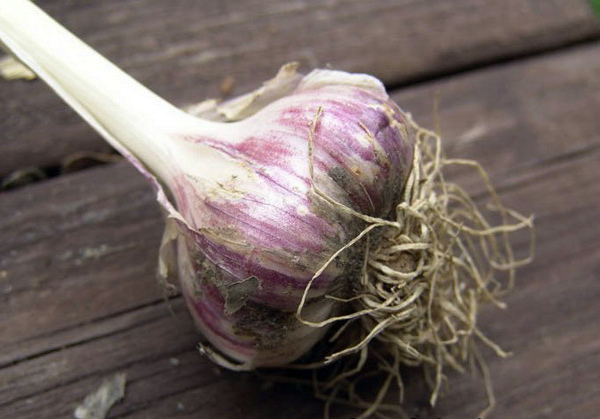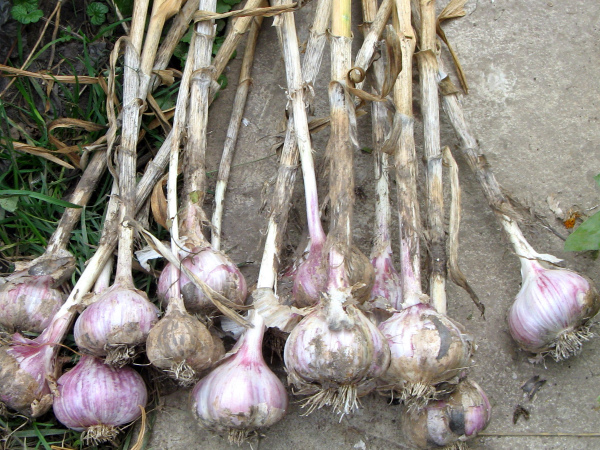When to clean and how to store summer garlic from the garden
Content
The importance of timely cleaning
Summer garlic is characterized by amicable ripening, therefore, it must be harvested at a strictly set time: unripe bulbs will not have time to fully acquire the necessary taste and nutritional qualities, and overexposed ones, on the contrary, will lose them, and will also lose the necessary keeping quality.
You need to harvest spring garlic a little later than the one that was planted before the winter: when you plant the cloves in the spring, they need additional time for rooting, while winter varieties manage to do this in the cold season, and with the arrival of heat they begin to actively develop.
In addition, weather conditions also affect the ripening of a crop: when it is a rainy summer, the ripening process occurs much faster. Therefore, in addition to the standard calendar dates, be sure to take into account other factors and carefully observe the culture: the garlic itself will tell you when to harvest it.
How to store video
In the video, you will learn how to store garlic until the next harvest.
Ripening garlic
There are several visual clues that it is time to harvest the garlic:
- the lower leaves of the aboveground part of the plants turn yellow;
- there is a massive lodging and drying of garlic tops;
- the root collar dries up;
- the head is fully formed, the teeth are clearly visible in it, and it is covered with dense scales that begin to dry out.

To pinpoint the time when the crop needs to be harvested from the beds, you will have to dig up a few heads and conduct an inspection. If the traits persist for all bulbs, then harvest time has come.
When to clean up
And yet, when is the best time to clean up?
As a rule, spring garlic has time to fully ripen by the period between August 20 and September 10. But, as mentioned above, the harvest time can shift in one direction or the other: a lot depends on the weather conditions in this agricultural season.
Therefore, it is worth focusing on the indicated dates, but do not forget to closely monitor the condition of the garlic bed.
In addition, there are several rules for correct harvesting:
- when you see the first signs of ripening, try to partially free the bulbs from the soil so that they can prepare for the upcoming extraction;
- for the week for the proposed cleaning, you need to stop watering so that the soil dries out;
- harvest on a dry, similar day, preferably in the morning or evening.
How to store
When the harvest is harvested, the garlic heads must be dried, otherwise they will not be able to be stored for a long time. This is best done while cleaning. If the day is dry, the garlic heads are simply laid out in an even layer right there in the garden. Cover the bulbs with plastic overnight.
It takes about a half moon to dry completely, after which the culture can be removed for permanent storage.
Proper storage conditions will allow you to enjoy tasty and juicy garlic cloves throughout the long winter:
- the closet or pantry in which the vegetable will be stored must be well ventilated.This is to protect the crop from moisture and the development of pathogenic microorganisms;
- temperature fluctuations should not be allowed - it should be either low (2-4 degrees) or high enough (about +20), but always constant;
- not the least important is the way the heads are laid - each of them must receive a sufficient amount of fresh air. It is best to tie the garlic bulbs in braids in the old fashioned way and hang them on the walls. Or you can use a container that allows air to pass through well, for example, wicker baskets;
- If, for some reason, you have to store the crop in plastic or glass containers, try sprinkling the heads with any natural moisture absorber: for example, ordinary rock salt.
Follow these simple tips and your crops will always be safe and you can enjoy great taste throughout the winter.
Home Storage Video
From the video you will learn how you can save garlic at home or in an apartment.



